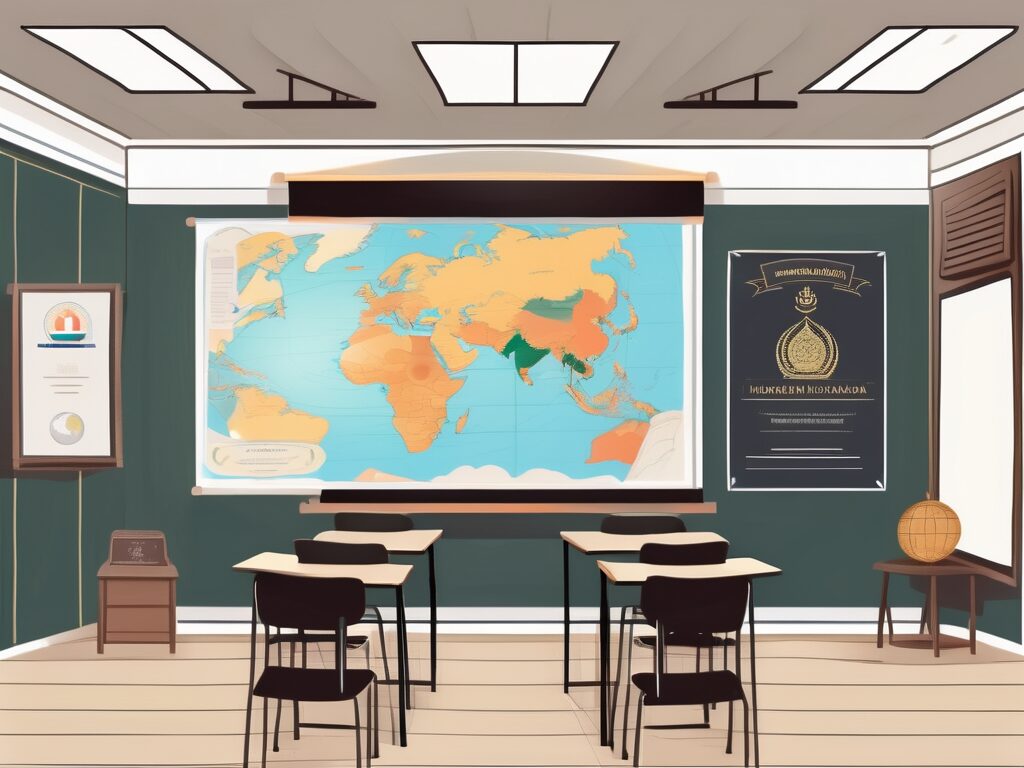html
Essential Insights for International Teachers in Singapore
Teaching in a foreign country can be both an exhilarating and daunting experience. For international teachers in Singapore, understanding the local culture, educational system, and professional landscape is crucial for success. This blog post aims to provide essential insights that will help you navigate your teaching journey in this vibrant city-state.
Understanding Singapore’s Education System
Singapore is renowned for its high-quality education system, which consistently ranks among the best in the world. As an international teacher, it’s important to familiarize yourself with the structure and curriculum of Singaporean schools. The education system is divided into several levels:
- Primary Education: Lasts for six years and focuses on foundational skills.
- Secondary Education: Lasts for four to five years, offering various academic tracks.
- Post-Secondary Education: Includes junior colleges, polytechnics, and institutes of technical education.
Understanding this structure will help you tailor your teaching methods to meet the needs of your students effectively.
Cultural Adaptation for International Teachers
Adapting to a new culture is one of the most significant challenges faced by international teachers. Singapore is a melting pot of cultures, with a rich tapestry of traditions and languages. Here are some tips for cultural adaptation:
- Learn the Local Languages: While English is widely spoken, learning basic phrases in Mandarin, Malay, or Tamil can help you connect with students and parents.
- Embrace Diversity: Celebrate the multicultural environment by incorporating diverse perspectives into your lessons.
- Participate in Local Events: Engage in community events and festivals to better understand the local culture and build relationships.
By embracing the local culture, you will not only enrich your teaching experience but also foster a positive learning environment for your students.
Effective Teaching Strategies in Singapore
To thrive as an international teacher in Singapore, it’s essential to adopt effective teaching strategies that resonate with local students. Here are some proven methods:
- Inquiry-Based Learning: Encourage students to ask questions and explore topics deeply, fostering critical thinking skills.
- Collaborative Learning: Promote group work and peer-to-peer learning to enhance social skills and teamwork.
- Technology Integration: Utilize digital tools and resources to make lessons more engaging and interactive.
Implementing these strategies can significantly enhance student engagement and learning outcomes.
Professional Development Opportunities
Continuous professional development is vital for teachers looking to improve their skills and stay updated with educational trends. In Singapore, there are numerous opportunities for international teachers:
- Workshops and Seminars: Attend local workshops to learn about the latest teaching methodologies.
- Networking Events: Join professional organizations to connect with other educators and share best practices.
- Online Courses: Explore online platforms offering courses tailored to international educators.
Engaging in professional development not only enhances your teaching skills but also opens doors for career advancement.
Building Relationships with Students and Parents
Establishing strong relationships with students and their families is crucial for a successful teaching experience. Here are some strategies to foster these connections:
- Open Communication: Maintain regular communication with parents through newsletters, emails, or parent-teacher meetings.
- Be Approachable: Create a welcoming classroom environment where students feel comfortable sharing their thoughts and concerns.
- Involve Parents: Encourage parental involvement in school activities and events to strengthen the school community.
Building these relationships will create a supportive network that benefits both you and your students.
Conclusion
Teaching in Singapore as an international educator can be a rewarding experience filled with opportunities for personal and professional growth. By understanding the local education system, adapting to the culture, employing effective teaching strategies, and engaging in professional development, you can make a significant impact on your students’ lives. Remember, building strong relationships with students and parents is key to creating a positive learning environment.
Ready to embark on your teaching journey in Singapore? Explore our resources on teaching strategies and cultural adaptation to get started!

